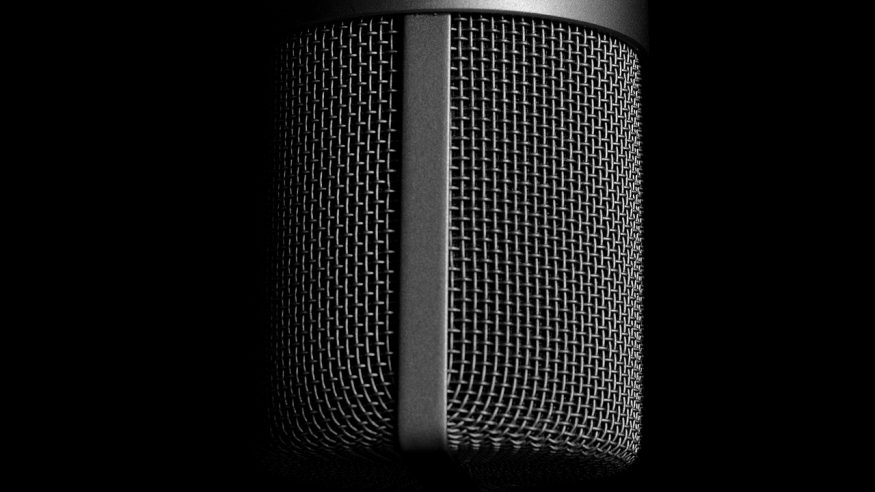Drill Music and Epistemic Injustice
7 August 2023
What are the legitimate ways of interpreting a musician’s work and words? This might seem like an abstract philosophical question, but it isn’t. This question matters because sometimes music is used to justify interferences with freedom, or used as evidence of criminality in trials that might lead to serious punishment. For example, in some cases, drill –a subgenre of hip hop, renowned for its violent lyrics (for more information about drill see here) – is being used as evidence of a propensity to violent and reprehensible behaviour, based on the content of the lyrics and videos in drill music. In other cases, drill artists (drillers) have been given Criminal Behaviour Orders that restrict their freedom to perform and disseminate drill music.
Part of the issue concerns the authority that musicians –drillers, in this case—have over their words. In recent work, I have argued that the way drillers’ words are treated can amount to an epistemic injustice. Here I outline two types of epistemic injustice –testimonial injustice and contributory injustice— and discuss how the treatment of drill constitutes both.
Drill Music and Testimonial Injustice
Testimonial injustice occurs when someone is treated as less believable than they ought to be treated due to prejudice about a social group they belong to (Fricker, 2007).
Drillers’ testimonies are often assigned deflated credibility due to prejudice. Drillers often explicitly label their work as fictional and explain that their use of violent lyrics is merely to sell their music, but they are not believed (see here and here). This shows how the assumption that drill music causes, precipitates or glorifies crime is at odds with how those within the drill scene view it. Nevertheless, their testimonies receive a reduced level of credibility. We often think that authors are the authorities about the meanings of their works, but in the case of drill, drillers are not seen as authorities of their drill. Moreover, stereotypes about the criminality and believability of black boys and men produce these deflated credibility assignments. The driller is not believed because they are stereotyped by hearers –court officials, police officers and media agents— as violent criminals.
For example, Owusu-Bempah (2022) describes a case in which judges took lyrics to be evidence of gang membership and intent to use violence despite the musician asserting that the lyrics were fictional and motivated by commercial concern; other drillers have said that their work is non-autobiographical, but a fiction constructed for advancing their music careers; and others have made clear that their drill portrays a story of their surroundings in response to restrictions and censorship. These are not unusual narratives in the context of music –but drillers are not believed when they assert them.
Some drillers who are subject to restrictive measures and censorship have made it clear that their work is non-autobiographical and a way of “getting out.” For instance, AM and Skengdo received a nine-month suspended sentence for breaching their CBO when they performed “Attempted 1.0,” which allegedly incited gang violence, despite there being no evidence of gang membership in the lyrics (Fatsis, 2019). When they appeared on the BBC to discuss their injunctions, they made clear the fictional nature of their drill. When asked by BBC 1Xtra’s Twin B what they want people to take away from their music, AM responds he wants people “to appreciate… the way it’s portraying a story of where we have come from” (1xtra, 2019). These cases show that despite how some drillers view and describe their artistry—fictional, reflective of their surroundings and an opportunity to sell more music—their views are not assigned credibility, and this scrutiny is based in negative identity prejudices about black believability and criminality, constituting a testimonial injustice.
Drill Music and Contributory Injustice
Contributory injustice occurs when the kind of ideas or concepts some people use are not a good “fit” for capturing the experiences of others –and the fact that these ideas or concepts are pervasive can make it harder for those other people to articulate and explain their experiences (Dotson, 2012).
The critical scrutiny of drill constitutes a contributory injustice since there are readily available frameworks sufficiently influenced by drillers to adequately interpret their work. These frameworks “highlight the importance of local knowledge and familiarity with people and places to interpret the threat levels in online communications” (Ilan, 2020, p. 998). We can identify contributory injustice here because drillers have the necessary ideas and concepts to make sense of their violent lyrics, but these interpretations are shunned. This meets the required components of contributory injustice, since agents are maintaining and utilising street-illiterate, structurally prejudiced ideas and concepts in seeing the music as violent autobiographies. This thwarts drillers’ ability to contribute to shared knowledge.
The use of drill lyrics and videos in criminal courts constitutes a form of contributory injustice since prosecutors are presenting evidence in street-illiterate ways, such as “autobiographical confessions to crimes, threats of violence or proof of gang affiliation” (Rymajdo, 2020). Where those within the drill scene stress the need for familiarity with rap’s genre codes, so that criminal justice actors do not conflate a violent musical persona with a driller sitting on the dock, their interpretations aren’t taken on board by the prosecution and jury members.
The censorship of drill constitutes a form of contributory injustice because extreme measures are being used to prevent drillers and those within the drill scene from contributing to shared knowledge. This injustice is intensified since agents are not just insisting that the music is violent and so resisting “street literate” interpretive resources but are also using state force to limit drill, as in the case of AM and Skengdo, who received a nine-month suspended sentence for breaching their CBO. This means important knowledge is unavailable for the shared interpretive resources, such as how drillers’ social contexts influence their lyrics.
To conclude, I have said a bit about how drill music is scrutinised by the Met and system of courts, and how this scrutiny constitutes two types of epistemic injustice: contributory injustice and testimonial injustice. Familiarity with the nuances of drill music, along with philosophical analyses, can help us to form more informed judgements about when and why these interferences with important freedoms are wrong –in particular, because it is based on failures to treat others as knowers, specifically in relation to their own artistic content.
1xtra, B. R. (2019, April 25). Skengdo and AM Talk Injunctions and Censorship. Retrieved from YouTube: https://www.youtube.com/watch?v=lgmobkQeEWU&t=252s
Dotson, K. (2012). A Cautionary Tale: On Limiting Epistemic Oppression. University of Nebraska Press, 24-47.
Fatsis, L. (2019). Policing the Beats: The Criminalisation of UK Drill and Grime Music by the London Metropolitan Police. The Sociological Review, 1300-1316.
Fricker, M. (2007). Epistemic Injustice . New York: Oxford University Press.
Ilan, J. (2020). Digital Street Culture Decoded: Why Criminalizaing Drill Music is Street Illiterate and Counterproductive. British Journal of Criminology, 994-1013.
Owusu-Bempah, A. (2022). Prosecuting Rap: What Does the Case Law Tell Us. Journal of Popular Music, 427-455
Rymajdo, K. (2020, December 8). Prosecuting Rap: How a UK Legal Project is Fighting the Use of rap Lyrics in Court. Retrieved from DJMag: https://djmag.com/longreads/prosecuting-rap-how-uk-legal-project-fighting-use-rap-lyrics-court
Image by Richard Cejas from Pixabay
- October 2025
- September 2025
- August 2025
- July 2025
- June 2025
- May 2025
- April 2025
- March 2025
- February 2025
- January 2025
- December 2024
- November 2024
- October 2024
- September 2024
- August 2024
- July 2024
- June 2024
- May 2024
- April 2024
- March 2024
- February 2024
- January 2024
- December 2023
- November 2023
- October 2023
- September 2023
- August 2023
- July 2023
- June 2023
- May 2023
- April 2023
- March 2023
- February 2023
- January 2023
- December 2022
- November 2022
- October 2022
- September 2022
- August 2022
- July 2022
- June 2022
- May 2022
- April 2022
- March 2022
- February 2022
- January 2022
- December 2021
- November 2021
- October 2021
- September 2021
- August 2021
- July 2021
- June 2021
- May 2021
- April 2021
- March 2021
- February 2021
- January 2021
- December 2020
- November 2020
- October 2020
- September 2020
- August 2020
- July 2020
- June 2020
- May 2020
- April 2020
- March 2020
- February 2020
- January 2020
- December 2019
- November 2019
- October 2019
- September 2019
- August 2019
- July 2019
- June 2019
- May 2019
- April 2019
- March 2019
- February 2019
- January 2019
- December 2018
- November 2018
- October 2018
- September 2018
- August 2018
- July 2018
- June 2018
- May 2018
- April 2018
- March 2018
- February 2018
- January 2018
- December 2017
- November 2017
- October 2017
- September 2017
- August 2017
- July 2017
- June 2017
- May 2017

